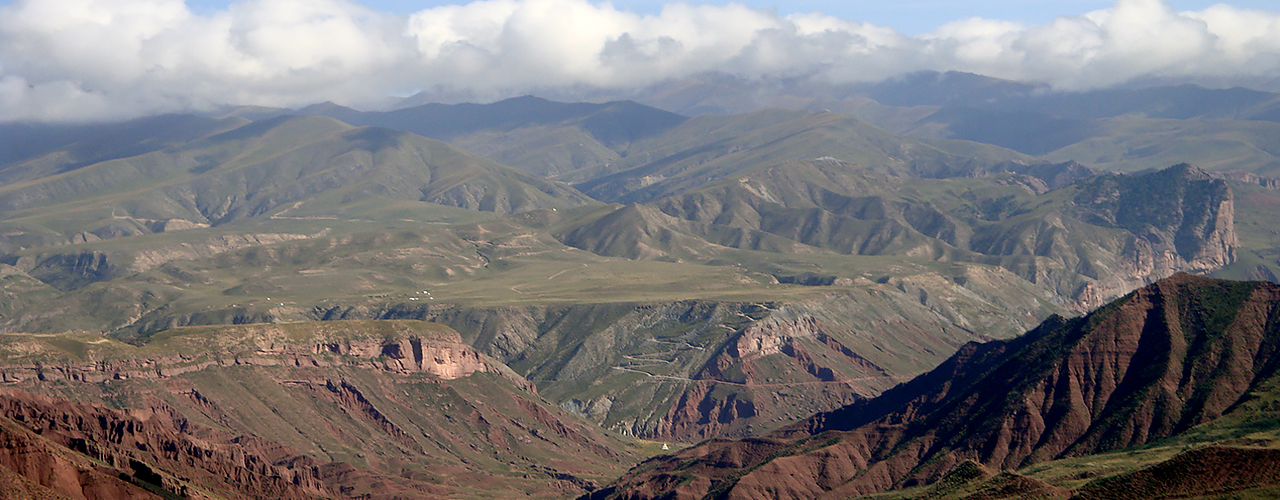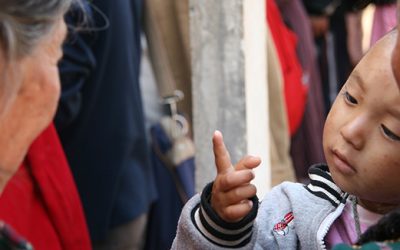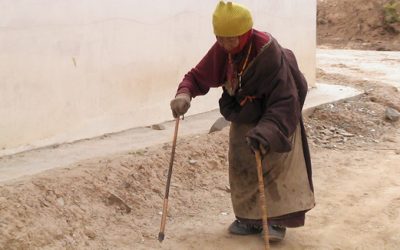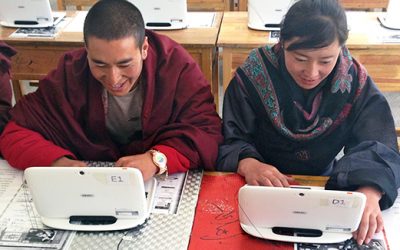
Environmental Projects
How sad it is to see the rapid changes taking place on the Tibetan Plateau. Clean air and pristine waters, earth protected for millennia by isolation from the mechanized world and through traditional use practices are being lost to chemical residue brought on by careless “strip mining” and the introduction of non-biodegradable plastics. There are no available recycling centers in Qinghai Province, leaving burning plastics a poor recourse for disposal. Lead core automobile batteries litter what was once clear, green pastures. In a culture that has historically been organically based by design and non-toxic to the environment by choice – an environmental disaster looms large. The Qinghai Gesar Foundation is now developing programs that will begin to counteract these trends while offering doable, practical alternative solutions. Working hand in hand with local government and the indigenous population we propose the programs described below.
Your donations are urgently needed to support our efforts at educating the community about the sudden changes that have come to Golog. The recent advent of electricity and improved highways has brought the benefits as well as the detriments of modern life to growing towns. Tons of packaged foods and bottled water now arrive weekly. Traditionally, only biodegradables were available but now we see plastics piling up and the rivers becoming soiled and polluted. Through community education on environmental protection and demonstration projects like “clean up” days, we will see an improved understanding of how individuals working together can benefit all.
Model Recycling Program
Over time, the Blue Valley Foundation would like to foster development of an easily replicated “prototype” recycling program. We will begin with community education to empower local people by exploring problems brought about by abandoning traditional ways and taking up the use of non-biodegradables. Beginning in our schools, Blue Valley will develop an educational module to introduce the importance of “recycle, reuse, repurpose”. We are exploring grant funds to purchase recycling equipment so that plastic bottles and packaging can be broken down and sold for repurposing into clothing or other uses. This will provide a means to clean the environment while providing an opportunity for local people to develop a new industry. In order for recycling to succeed there must be an understanding of its practical benefits. Tibetans have traditionally taken pride in the natural beauty of their surroundings.
We propose an easily assimilated recycling program of collecting plastics to begin with. Later on this can be expanded to glass, and paper, which now cause garbage to pile up and poor sanitary conditions to occur. Lead core automobile batteries are also a growing concern. With a long-term outlook of profitable self-sustenance, our intention is to work cooperatively with local community members and governmental officials alike so those clean environmental programs are a win-win situation for all. Community participation is key.
Preservation of Endangered Species and Their Habitats
As part of a globally based education, QGF will introduce “Community Cleanup” days. We will work together with the regional government to help prevent harm to animals such as Yaks and Dri’s who are commonly harmed or die by eating plastic bags. Local habitat for fox, antelopes, wild yak, deer, and donkeys are being destroyed by deforestation and poaching.
Working in tandem with successfully established environmental groups, encroachment of surrounding forest area can be turned back and natural preserves established. Awareness of the effects of slaughtering endangered species such as the River Otter and Gray Fox, as a means of business for their skins or food, must be cultivated. Repopulating the preserves of endangered species through animal releases is to be encouraged.






